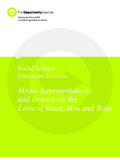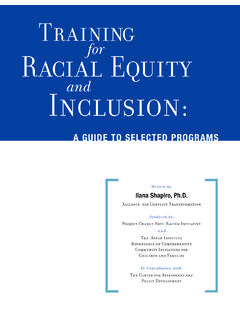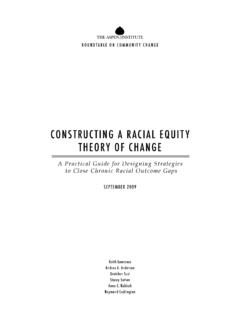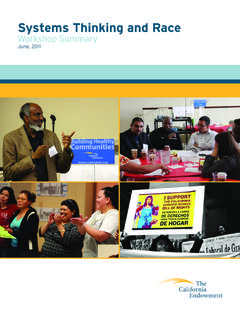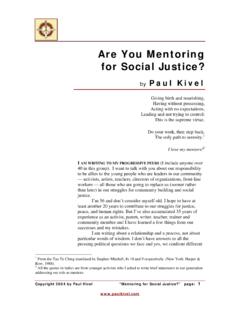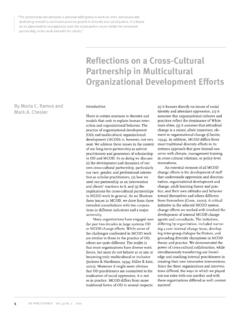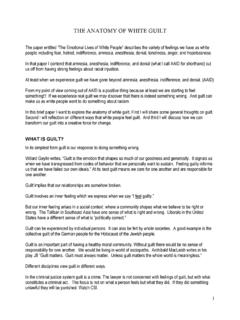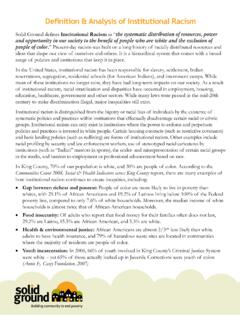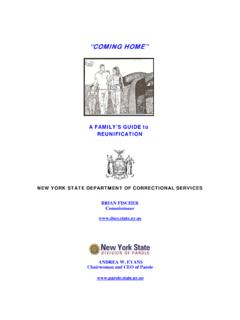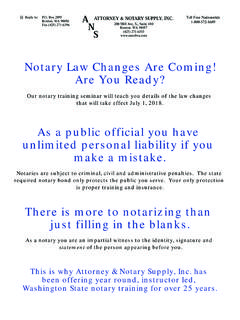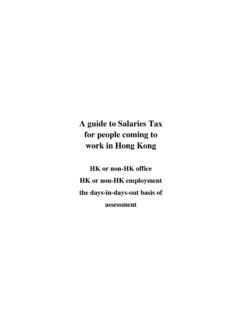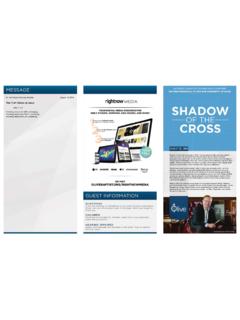Transcription of White Privilege: Unpacking the Invisible Knapsack …
1 White Privilege: Unpacking the Invisible Knapsack Peggy McIntosh "I was taught to see racism only in individual acts of meanness, not in Invisible systems conferring dominance on my group". Through work to bring materials from women's studies into the rest of the curriculum, I have often noticed men's unwillingness to grant that they are overprivileged, even though they may grant that women are disadvantaged. They may say they will work to women's statues, in the society, the university, or the curriculum, but they can't or won't support the idea of lessening men's. Denials that amount to taboos surround the subject of advantages that men gain from women's disadvantages.
2 These denials protect male privilege from being fully acknowledged, lessened, or ended. Thinking through unacknowledged male privilege as a phenomenon, I realized that, since hierarchies in our society are interlocking, there are most likely a phenomenon, I realized that, since hierarchies in our society are interlocking, there was most likely a phenomenon of while privilege that was similarly denied and protected. As a White person, I realized I had been taught about racism as something that puts others at a disadvantage, but had been taught not to see one of its corollary aspects, White privilege, which puts me at an advantage.
3 I think whites are carefully taught not to recognize White privilege, as males are taught not to recognize male privilege. So I have begun in an untutored way to ask what it is like to have White privilege. I have come to see White privilege as an Invisible package of unearned assets that I can count on cashing in each day, but about which I was "meant" to remain oblivious. White privilege is like an Invisible weightless Knapsack of special provisions, maps, passports, codebooks, visas, clothes, tools , and blank checks. Describing White privilege makes one newly accountable.
4 As we in women's studies work to reveal male privilege and ask men to give up some of their power, so one who writes about having White privilege must ask, "having described it, what will I do to lessen or end it?". After I realized the extent to which men work from a base of unacknowledged privilege, I understood that much of their oppressiveness was unconscious. Then I remembered the frequent charges from women of color that White women whom they encounter are oppressive. I began to understand why we are just seen as oppressive, even when we don't see ourselves that way.
5 I began to count the ways in which I enjoy unearned skin privilege and have been conditioned into oblivion about its existence. My schooling gave me no training in seeing myself as an oppressor, as an unfairly advantaged person, or as a participant in a damaged culture. I was taught to see myself as an individual whose moral state depended on her individual moral will. My schooling followed the pattern my colleague Elizabeth Minnich has pointed out: whites are taught to think of their lives as morally neutral, normative, and average, and also ideal, so that when we work to benefit others, this is seen as work that will allow "them" to be more like "us.
6 ". Peggy McIntosh is associate director of the Wellesley Collage Center for Research on Women. This essay is excerpted from Working Paper 189. " White Privilege and Male Privilege: A Personal Account of coming To See Correspondences through Work in Women's Studies" (1988), by Peggy McIntosh; available for $ from the Wellesley College Center for Research on Women, Wellesley MA 02181. The working paper contains a longer list of privileges . This excerpted essay is reprinted from the Winter 1990 issue of Independent School. Daily effects of White privilege I decided to try to work on myself at least by identifying some of the daily effects of White privilege in my life.
7 I have chosen those conditions that I think in my case attach somewhat more to skin-color privilege than to class, religion, ethnic status, or geographic location, though of course all these other factors are intricately intertwined. As far as I can tell, my African American coworkers, friends, and acquaintances with whom I come into daily or frequent contact in this particular time, place and time of work cannot count on most of these conditions. 1. I can if I wish arrange to be in the company of people of my race most of the time. 2. I can avoid spending time with people whom I was trained to mistrust and who have learned to mistrust my kind or me.
8 3. If I should need to move, I can be pretty sure of renting or purchasing housing in an area which I can afford and in which I would want to live. 4. I can be pretty sure that my neighbors in such a location will be neutral or pleasant to me. 5. I can go shopping alone most of the time, pretty well assured that I will not be followed or harassed. 6. I can turn on the television or open to the front page of the paper and see people of my race widely represented. 7. When I am told about our national heritage or about "civilization," I am shown that people of my color made it what it is.
9 8. I can be sure that my children will be given curricular materials that testify to the existence of their race. 9. If I want to, I can be pretty sure of finding a publisher for this piece on White privilege. 10. I can be pretty sure of having my voice heard in a group in which I am the only member of my race. 11. I can be casual about whether or not to listen to another person's voice in a group in which s/he is the only member of his/her race. 12. I can go into a music shop and count on finding the music of my race represented, into a supermarket and find the staple foods which fit with my cultural traditions, into a hairdresser's shop and find someone who can cut my hair.
10 13. Whether I use checks, credit cards or cash, I can count on my skin color not to work against the appearance of financial reliability. Peggy McIntosh is associate director of the Wellesley Collage Center for Research on Women. This essay is excerpted from Working Paper 189. " White Privilege and Male Privilege: A Personal Account of coming To See Correspondences through Work in Women's Studies" (1988), by Peggy McIntosh; available for $ from the Wellesley College Center for Research on Women, Wellesley MA 02181. The working paper contains a longer list of privileges .
